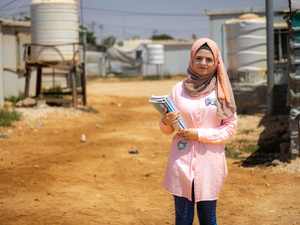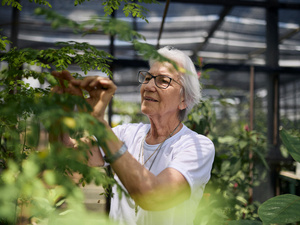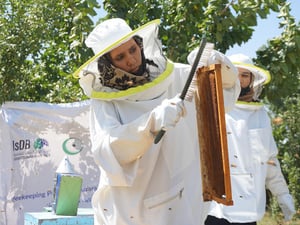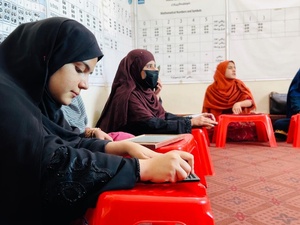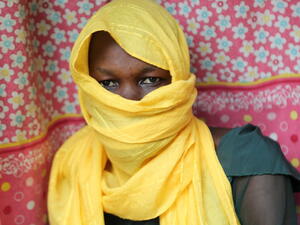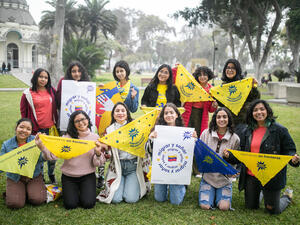16 Days of Activism: UNHCR backs Colombian women in response to sexual violence
16 Days of Activism: UNHCR backs Colombian women in response to sexual violence

Participants in the recent meeting of community leaders from Granizal and two other-violence-plagued towns.
MEDELLIN, Colombia, December 10 (UNHCR) - Sixteen-year-old Susana* had a short and unhappy life, beaten to death by a jealous and controlling husband. The man was a bully who used to tell Susana how to do her hair and decided whether or not she could paint her fingernails.
He regularly accused her of having a lover. The only things that brought her some happiness were her year-old daughter and membership of a youth group on the outskirts of Medellin, Colombia's second largest city.
On the day of her death, she was taking part in a dance rehearsal with her young friends when her husband showed up and demanded that she come home because their daughter would not stop crying. On the way there, he took Susana into an abandoned house and killed her.
It was a shocking crime, but one that highlighted the widespread problem of sexual and gender-based violence (SGBV) in Granizal, an informal settlement of 20,000 people on the edge of Medellin, most of them forced to flee their homes because of violence. Last year, some 100 men and women were killed in Granizal and more than 1,400 cases of SGBV were registered - a staggeringly high number.
The displaced are particularly vulnerable and in Granizal armed groups appear to use sexual violence as a means to assert social and psychological control. "Women in relationships with women are raped and told they must learn how to be with a man, while families are told to assure their daughters' virginity until they can be sold to the highest bidder," said Steve Bunce, who works with UNHCR.
But organizations like UNHCR are responding. The refugee agency, with assistance from the Archdiocese of Medellin and Pastoral Social-Caritas Colombia, is working with women and men from Granizal to strengthen and enhance prevention and protection strategies, encourage mutual support between survivors and forge a community self-protection network against SGBV.
Late last month, to mark the start of the annual global 16 Days of Activism against Sexual and Gender-Based Violence, UNHCR organized a meeting between male and female community leaders from Granizal and two other violence-plagued towns, Tanguí and Villa España, to share experiences and discuss community strategies to prevent and protect against SGBV.
Gloria*, a 60-year-old Afro-Colombian woman said the event was a great opportunity to examine ways to promote gender equality and community empowerment and put pressure on local authorities to take action. "This gives us the chance of getting feedback from the other women and men who are suffering just as we are," she said.
Yessica,* from Tanguí, stressed the need for women to help each other. "We must remain together and stand as a strong tower; this is the only way we can fight SGBV in our communities," she said. "We might die . . . but it is the only way our future generations can live in peace," she added.
Such meetings are encouraged by UNHCR and help to build solidarity between different communities and provide the opportunity to explore ways together to protect against SGBV and to empower women. The women of Granizal gain strength from knowing that this is not a problem they face alone. UNHCR and its implementing partners also help by conducting training sessions on community protection mechanisms against SGBV.
"Granizal is highly ruptured, and the sense of community needs to be strengthened in order to avoid cases like Susana's from happening again and again," Bunce noted. Her case also shows that combatting impunity is important and that change is needed if women are to lead peaceful, productive lives.
Susana's husband served only four months in prison and now poses a potential threat to his daughter, who will grow up without a mother. It would be a double tragedy if she also grows up in a society where she could end up following the fate of her mother.
* Names changed for protection reasons.
By Diana Diaz in Medellin, Colombia

